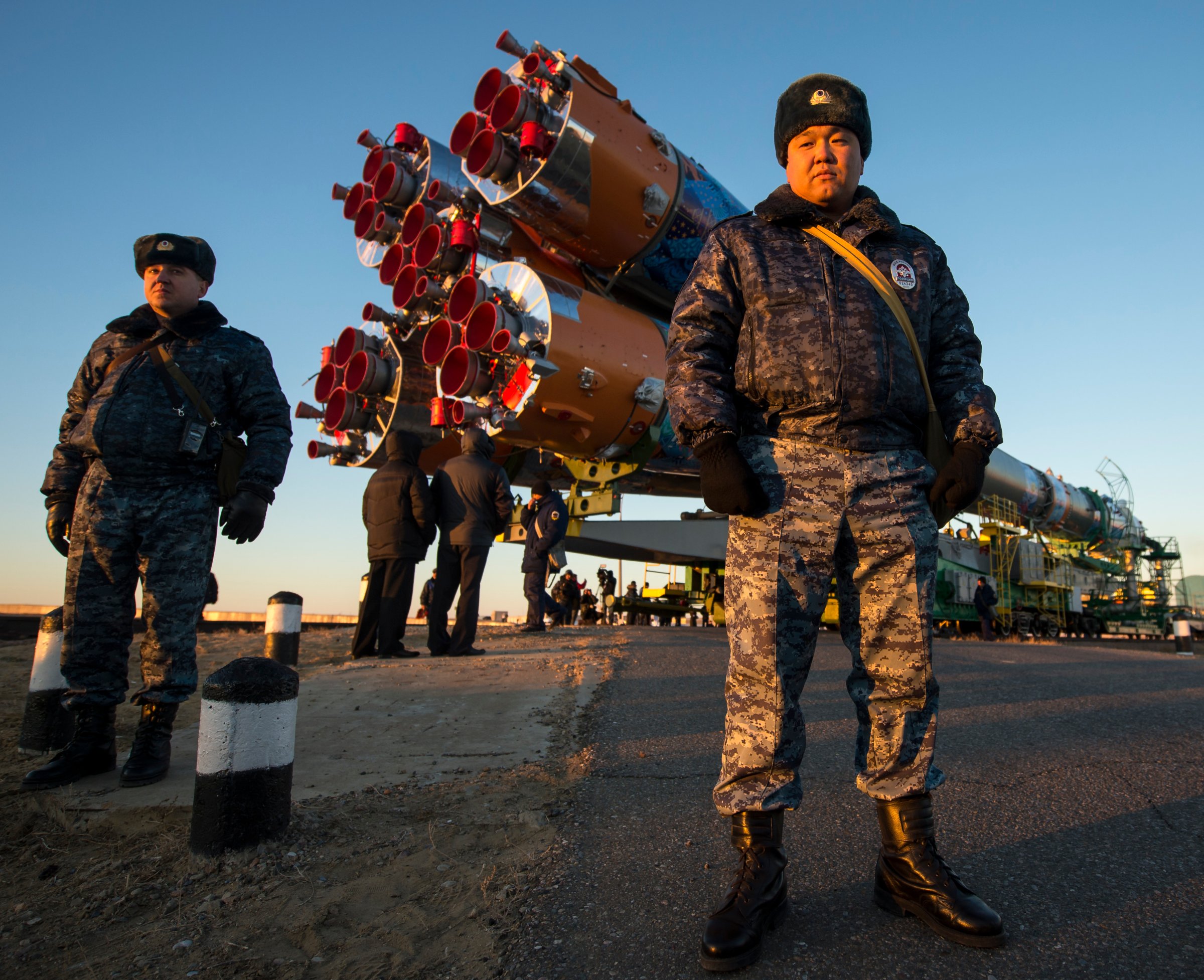
It’s a hard fact of exploratory history that angry people don’t achieve much in space. You have to be patient when you design your rockets, steely-eyed when you launch them and utterly unflappable when you actually get where you’re going.
That stay-poised doctrine was conspicuously at work in the past few days, as two different space projects played out in two different parts of the world with two very different results. On Friday, Russia scrapped the launch of its new Angara rocket—a booster that has been in development since 1994 and has gone pretty much nowhere. Vladimir Putin was personally involved both in overseeing the launch and in authorizing the stand-down—a line of command that would seem awfully strange if it were President Obama on the horn with Cape Canaveral telling the pad engineers what they can launch and when they can launch it.
On Saturday, meantime, NASA successfully tested its Low Density Supersonic Decelerator, a nifty piece of engineering that the space agency admittedly overhyped as a “flying saucer,” but that does kind of look like one and is actually a prototype of a new landing system for spacecraft going to Mars—a place NASA has been visiting with greater and greater frequency of late.
The U.S. and Russia were once the Castor and Pollux of space travel, cosmic twins that dazzled the world with their serial triumphs in the 1960s and ’70s, but they’ve gone in different directions since. America’s manned space program has been frustratingly adrift since the end of the Apollo era, but the shuttles did fly successfully 133 times (and failed disastrously twice) and new crewed spacecraft are in development. The unmanned program, meantime, has been a glorious success, with robot craft ranging across the solar system, to planets, moons, comets and asteroids—and one ship even exiting the solar system altogether.
And Russia? Not so much. The collapse of communism, the loss of Kazakhstan—which put the Baikonaur Cosmodrome, Russia’s Cape Canaveral, in an entirely different country—and hard economic times made space an unaffordable luxury. But now Russia is grimly trying to claw its way back—and the grimness is a problem.
The Angara launch was supposed to take place from the Plesetsk Cosmodrome in northwest Russia, a new installation intended to re-centralize the space program, getting it out of Kazakhstan and back on home soil. It’s of a piece with a range of Russia’s actions lately, which have, much like the Angara, been more fizzle than flight.
Putin’s Crimean land grab seemed bold if larcenous for a moment, but the blowback has been severe and he’s already backing down from further actions, with his ambitions for a renewed Russian empire limited—for the moment at least—to a single Black Sea island with less square mileage than Massachusetts. His long dreamed-of economic union—announced with enormous fanfare in early June and intended to serve as a counterweight to the 28-member EU—turned out to be nothing more than a table for three, shared with Belarus and Kazakhstan. Ukraine initially RSVP’ed yes, but that was one revolution and one Russian invasion ago, and the new government is once again tilting west.
And so it will probably go with Russia in space. The original space race was no less political than anything Russia is doing today, but both the U.S. and the U.S.S.R. were operating from positions of strength, projecting their competing power over a sprawling region of client states and taking the duel to the cosmic high ground. Russia today—with Putin calling the shots on when a booster should be launched and the government issuing petulant threats to quit flying American astronauts to the International Space Station—is acting neither strong nor confident.
It is, instead, joining the long list of states that have dreamed of space but sought to power themselves more with rage than rocket fuel. And consider how far they’ve gotten. North Korea? Pathetic. Iran? Please. China? They’re doing great things now, but that only started when they climbed down from their revolutionary zeal and started focusing on the engineering and physics instead of the ideology and slogans.
Russia may once again become the cosmic pioneer it was—and space fans of good will are rooting for that. With the Cold War over, it matters less whether the first flag on Mars or the next one on the moon is the stars and stripes or the Russian tri-color or even the Chinese stars. As long as a human being is planting it, that will be good enough. So the door is always open, Russia. But please, leave the nasty outside before you come in.
More Must-Reads from TIME
- Cybersecurity Experts Are Sounding the Alarm on DOGE
- Meet the 2025 Women of the Year
- The Harsh Truth About Disability Inclusion
- Why Do More Young Adults Have Cancer?
- Colman Domingo Leads With Radical Love
- How to Get Better at Doing Things Alone
- Michelle Zauner Stares Down the Darkness
Write to Jeffrey Kluger at jeffrey.kluger@time.com